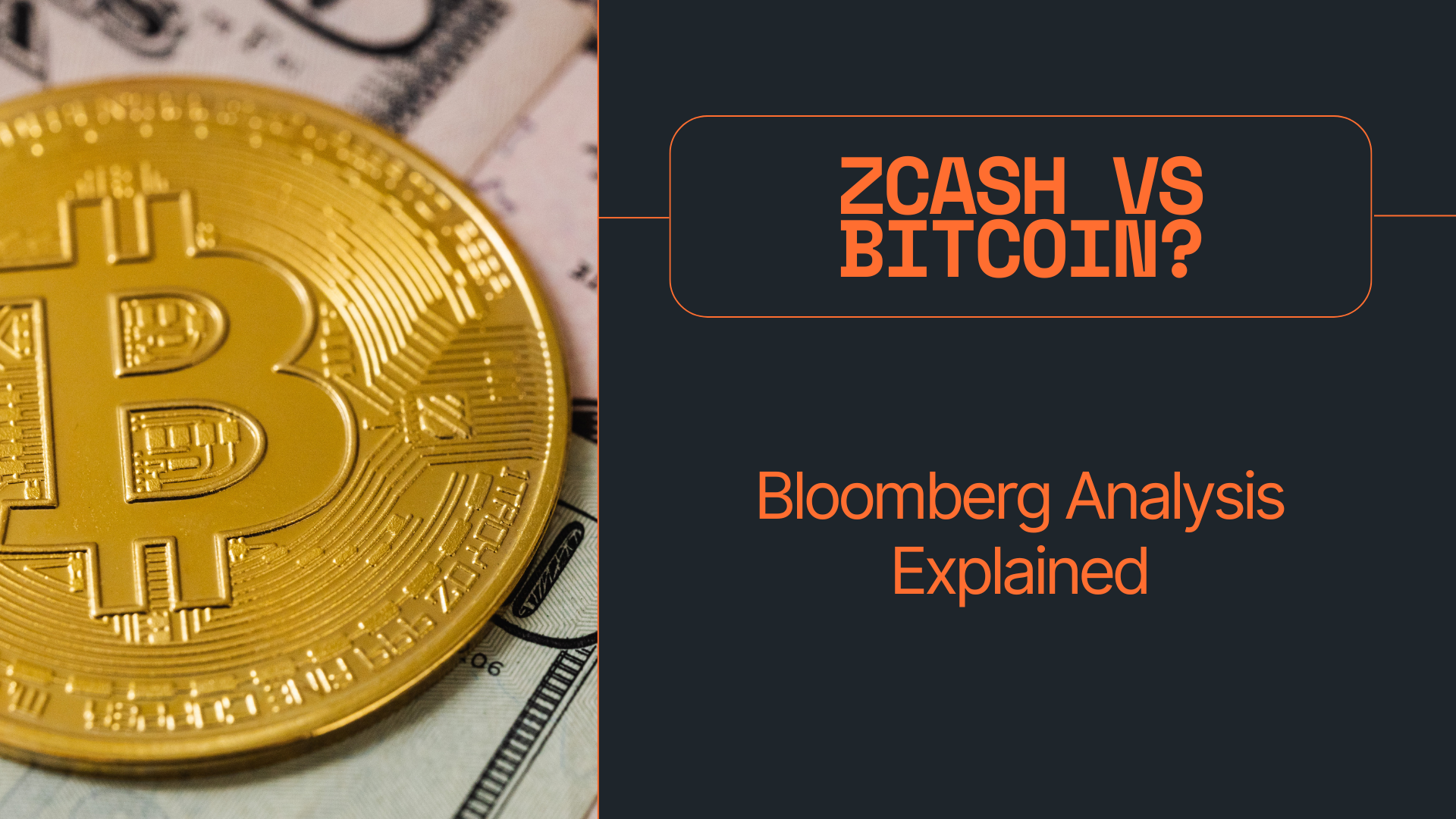
A familiar crypto rivalry just flared up again. Bloomberg Senior ETF analyst Eric Balchunas cautioned that the renewed push behind Zcash (ZEC)—the privacy coin known for zero-knowledge proofs—could unintentionally dilute support for Bitcoin at a sensitive moment for the industry. His remarks arrived as ZEC enjoyed a burst of attention and liquidity, lighting up an old fault line between privacy maximalists and Bitcoin-first advocates.
In a widely shared post on X, Balchunas said Zcash has “third-party candidate vibes, like Gary Johnson or Jill Stein,” suggesting that promoting a separate privacy narrative might “split the vote” exactly when Bitcoin (BTC)benefits from unified political and cultural backing. The analogy is blunt: in politics, third parties can siphon momentum from the front-runner even if they share some ideals. Balchunas’ point is that a similar dynamic could weaken Bitcoin’s message at a time when it’s fighting for mainstream legitimacy and policy clarity.
Why this is blowing up now
The warning isn’t happening in a vacuum. ForkLog flagged the comments amid a mini-resurgence in ZEC coverage and price action, putting Zcash back on front pages after months of relative quiet. The site’s English brief captured Balchunas’ core concern—community fragmentation—and the ripple effects it could have across institutions, retail, and policy conversations.
At the same time, ZEC has a new catalyst: OKX relisting. Yahoo Finance and other outlets noted that Zcash surged double digits after the exchange said it would restore ZEC spot trading, reopening a major venue for liquidity and signaling fresh appetite for privacy assets. OKX’s move helps explain why ZEC re-entered the market’s field of view—and why any commentary about its broader impact on Bitcoin is drawing outsized attention.
The privacy coin comeback—and the Winklevoss factor
There’s also a growing treasury-style bid behind ZEC. CoinDesk reported that Cypherpunk Holdings, a Winklevoss-backed vehicle, added another $18 million in ZEC last week, bringing its total Zcash holdings to roughly $150 million. The thesis, echoed by Tyler Winklevoss elsewhere: in an era of AI-driven surveillance and chain analytics, privacy is a feature, not a bug, and Zcash can serve as a kind of hedge where Bitcoin is intentionally transparent. Whatever one’s view, those dollars—and OKX’s relist—explain the new momentum Balchunas is reacting to.
What Balchunas is saying
Balchunas isn’t attacking Zcash’s tech. He’s pointing to strategic tradeoffs: Bitcoin’s political progress—think regulatory clarity, ETF adoption, and growing institutional ownership—benefits from message discipline. A high-profile, parallel push around a different monetary brand (especially one emphasizing privacy) could confuse newcomers, divide advocacy, or complicate policy at a moment when Bitcoin is finally getting a seat at mainstream financial tables. In other words: if the goal is to normalize crypto in the eyes of lawmakers, splitting attention may not be helpful.
Supporters of Zcash counter that pluralism is strength: Bitcoin and Zcash solve different problems—store-of-value transparency versus optionality for private payments—and healthy competition improves both. They argue the answer isn’t to suppress ZEC but to educate regulators and markets on use-case boundaries. That’s the heart of the debate ForkLog captured: cooperation vs. competition inside crypto’s big tent.
Narrative risk vs. liquidity reality
Even if you ignore politics, markets care about liquidity. Exchanges relisting ZEC expand order books, tighten spreads, and create short-term catalysts. Yahoo’s coverage of the OKX move ties directly to the price pop, underlining how venue access often matters more than rhetoric in the near term. If more centralized platforms follow, the “ZEC comeback” story could persist regardless of macro headwinds. Conversely, if relists stall or policy pushes turn chilly, ZEC’s momentum could fade as quickly as it returned.
For Bitcoin, the risk is mostly narrative. No credible analyst is suggesting that ZEC somehow displaces BTC’s role as collateral in institutional portfolios. But narrative pressure can still shape flows—think ETF demand, corporate treasury policies, or how policymakers frame crypto buckets. That’s the context in which a seasoned ETF analyst is waving a yellow flag: fragmentation can have second-order effects even if the fundamentals don’t change overnight.
The bigger picture
Crypto history shows that parallel narratives can rhyme without colliding. DeFi didn’t kill Bitcoin; NFTs didn’t kill DeFi. But momentum and attention are finite, and policy windows open only so wide. Zcash’s return—energized by exchange relisting and high-profile backers—offers a real-time case study in how privacy and transparency coexist (or clash) under crypto’s umbrella. Whether you side with Balchunas’ caution or ZEC supporters’ optimism, one thing is clear: the conversation is back, and it cuts to the core of how crypto wants to be seen by the outside world.